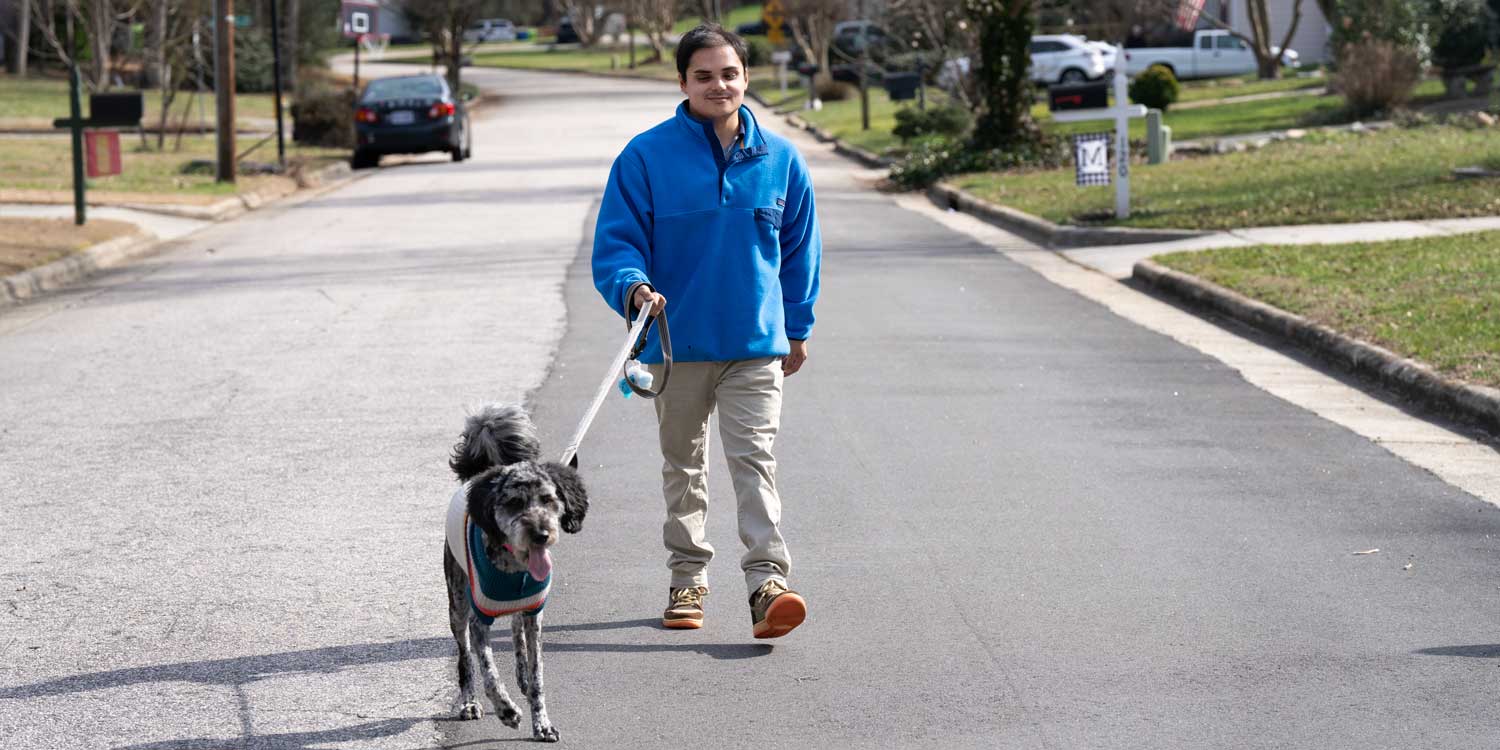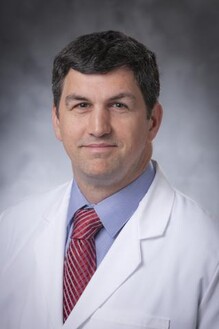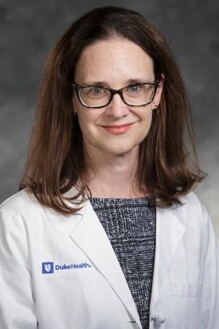Why One Man Chose Duke for Lifesaving Abdominal Surgery
Rare Connective Tissue Disease Makes Going Under the Knife Difficult and Dangerous

Tyler Farley pets his dog, Stormy, at his home in Raleigh, NC.
In 2014, a teenage Tyler Farley was diagnosed with Vascular Ehlers-Danlos syndrome (VEDS). The rare genetic disease weakened Farley’s arteries, organs, and other connective tissues, and put him at risk for dangerous complications. In Fall 2023, Farley went to his local emergency room with abdominal pain. When he learned he needed emergency surgery, Farley went to Duke Health to ensure he received advanced care from experts who understood his condition. “Having the right team saved my life,” Farley said.
Signs of VEDS
Looking back, 27-year-old Tyler Farley can see how the signs and symptoms of Vascular Ehlers-Danlos syndrome affected his life. Unlike his twin sister, Farley was born with clubfoot, meaning his feet were pointed down and in, and had to be surgically repaired. As he grew older, Farley often experienced unusual and unexplained bruising, swelling, and joint problems. When he was 17 years old, Farley was hospitalized for two weeks with a bowel perforation -- a hole in the wall of his large intestine that leaked excrement into his abdomen. Luckily, the hole repaired itself. That’s when Farley learned he had Vascular Ehlers-Danlos syndrome.
“They gave me the genetic results, sent me home, and said ‘good luck,’” Farley said. He soon discovered that Vascular Ehlers-Danlos syndrome is a rare, severe genetic disorder that can lead to life-threatening aneurysms, internal bleeding, organ problems, and more. He also learned that he probably inherited the condition from his father, who died suddenly when Farley was 10 years old.
A Second Round of Trouble
In late September 2023, Farley came down with flu-like symptoms and abdominal pain. He headed to a nearby emergency room, where doctors said he had another bowel perforation. They told Farley the cause was diverticulitis, a condition that occurs when a small abnormal pocket inside the colon becomes infected or injured. They recommended surgery.
“I knew the reason was not diverticulitis,” Farley said. When he asked his doctors what they knew about Vascular Ehlers-Danlos syndrome, Farley was less than impressed with their answers. "I said, ‘You have no idea what you're about to cut into.”
Duke Offers Advanced Care
Farley checked himself out of the hospital, and his mom drove him to Duke University Hospital in Durham, NC. “I needed the doctor to understand my concerns because performing surgery on me is like sewing two wet Kleenexes together,” Farley said. “When I got to Duke, they listened.”
The next day, Duke general surgeon Sean Montgomery, MD, performed surgery to repair Farley’s perforation. “I remember his operation very clearly. His tissues were so fragile. They could tear so easily,” Dr. Montgomery said.
Dawn Coleman, MD, a Duke vascular surgeon specializing in treating complex vascular conditions, said it’s important for people with VEDS who need surgery to have a team of experts “assembled, standing by, and ready to treat emergent situations if they arise.” Dr. Montgomery agrees. “Duke is uniquely positioned to care for patients like Mr. Farley who have complex medical problems and need more than routine care.”

After Surgery, Farley Focuses on Recovery
During Farley’s surgery, Dr. Montgomery removed part of Farley’s colon and created a temporary colostomy. The opening diverts waste from the colon to a pouch attached to the abdomen. When Farley is ready, Dr. Montgomery will reverse the colostomy and restore Farley’s normal colon function.
“I became one with the colostomy bag,” Farley laughed. “I went from barely walking around the house to walking in the driveway, driving my car, and flying to Salt Lake City. I flew in to see my girlfriend this past New Year's Eve.”
Farley went back to work at the end of November 2023. He walks his dog Stormy every day and enjoys running and skiing, although he takes plenty of precautions. Farley also spends time raising awareness about Vascular Ehlers-Danlos syndrome and other connective tissue disorders with organizations like The VEDS Movement and The Marfan Foundation. “There's a whole lot of life out there to live,” Farley said. “That's what I'm going to do, and nothing's going to hold me back.”





